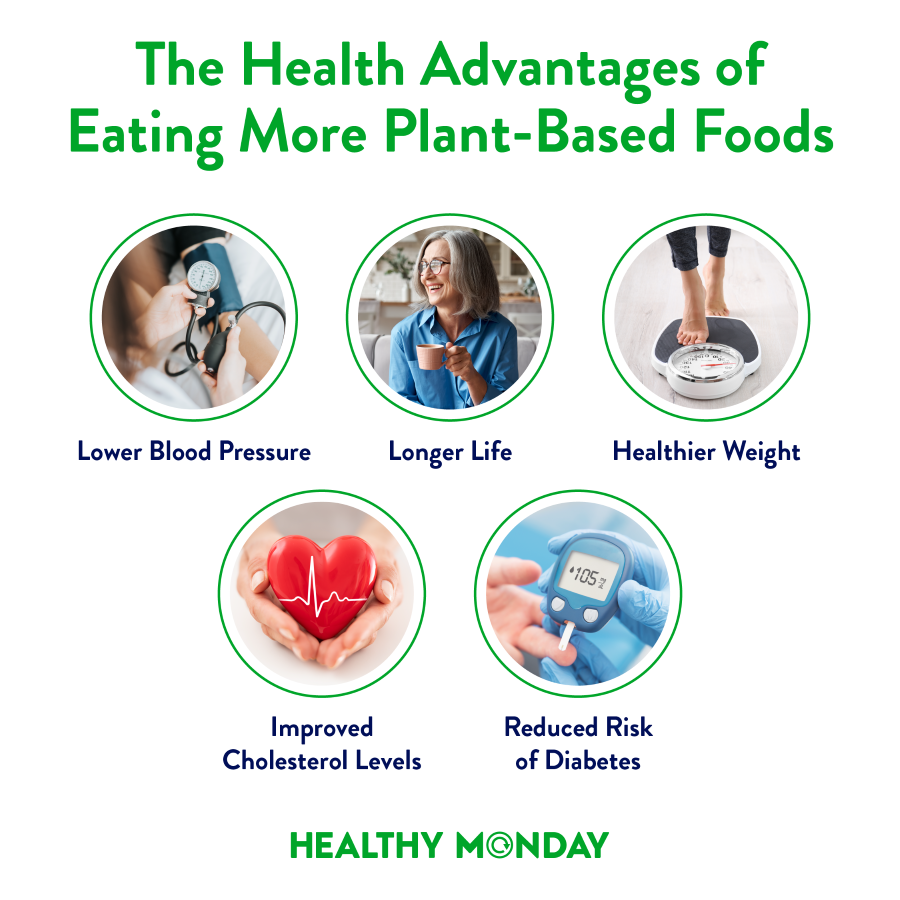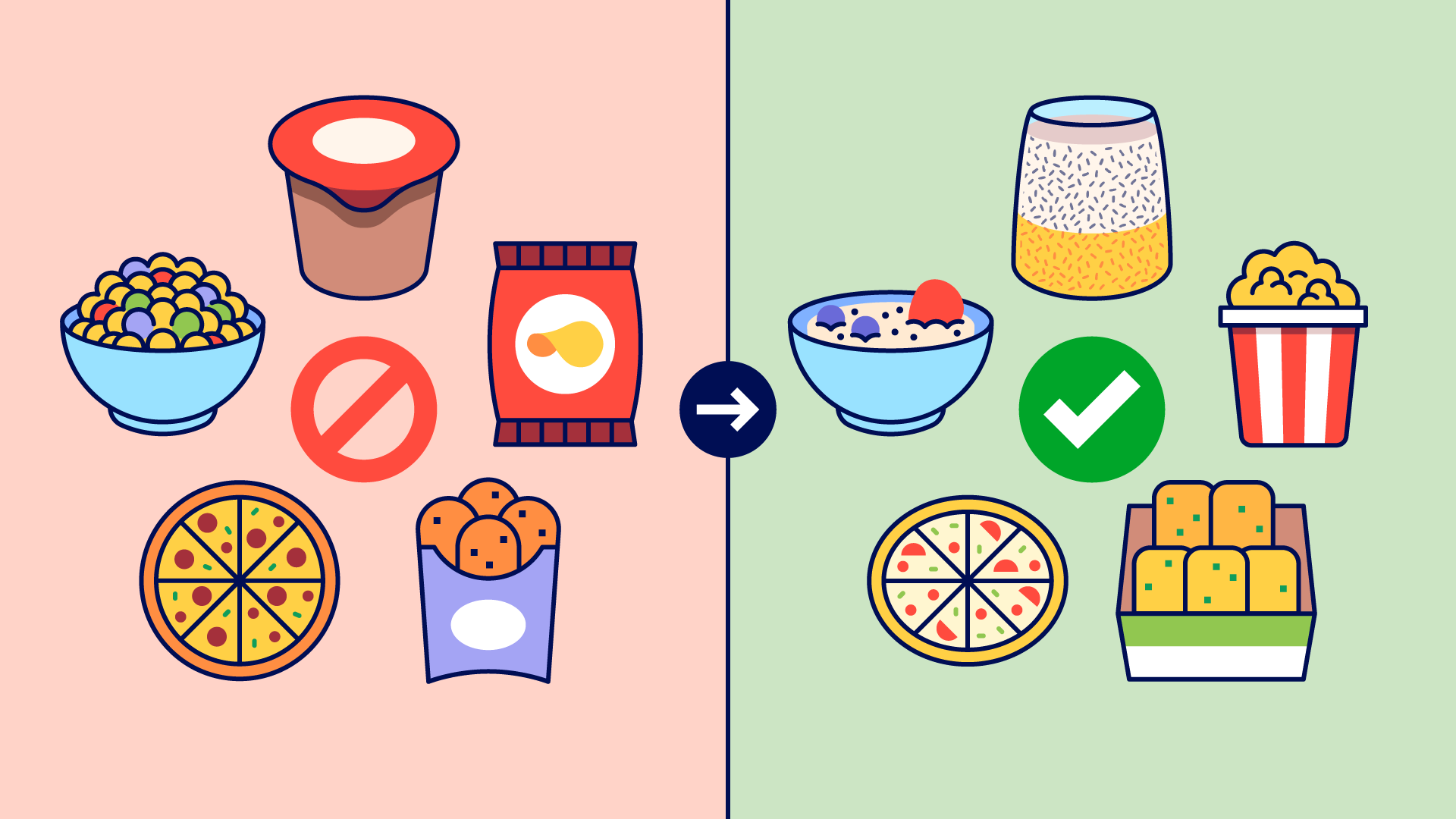The Health Benefits of Plant-Based Eating
The connection between health and diet is well documented in both scientific and popular literature. A growing body of research shows that a diet consisting of predominantly unprocessed plant-based foods, like fruits, vegetables, beans, mushrooms, and whole grains, can reduce one’s risk of developing a number of chronic diseases and even certain cancers. Doctors are beginning to recommend plant-based diets to their patients as a way to minimize their dependence on certain prescription medications. And despite the many myths to the contrary, a plant-based diet can deliver all the carbohydrates, fats, proteins, vitamins, and minerals necessary for a healthy functioning body.
The Health Advantages of Eating More Plant-Based Foods
- Lower blood pressure: Studies show that adhering to a predominantly- vegetarian diet can lower a person’s risk of developing high blood pressure and reduce their chances of having a stroke or heart disease.
- Reduced risk of developing type 2 diabetes: Plants are lower in saturated fats than animal-based foods, which helps keep cholesterol levels down and in check. A vegetarian diet can also help with weight management, another important factor linked to the development of type 2 or prediabetes.
- Healthier weight: People who eat more plant-based foods tend to have a lower body mass index than meat eaters, according to research from the National Heart, Lung, and Blood Institute.
- Improved cholesterol levels: Too much cholesterol in the body can block blood vessels, increasing the risk of a heart attack or stroke. Eating less meat and more plant-based foods has been shown to help lower blood lipid concentrations and cholesterol levels.
- Increased longevity: A study out of the Journal of the American Heart Association found that a healthy plant-based diet was associated with a lower risk of all-cause mortality in a general population of middle-aged US adults.
Three Easy Ways to Eat More Plants
- Try Meatless Monday: Commit one day of the week to meat-free eating. There are tons of recipes available online, many of which don’t require much preparation or culinary know-how. A rice and bean burrito, roasted sweet potato with peanut butter, or spaghetti with roasted tomatoes and pesto are all great meatless meal options.
- Add to your favorite dishes: There’s always room in our favorite recipes for a little improvisation. Don’t be afraid to add extra vegetables to your lasagna or another can of beans to your taco-night spread. Roasted onion, bell peppers, and broccoli can easily be sprinkled over any pizza or pasta.
- Make them familiar: A can of beans or a pot of quinoa may not excite your taste buds, but when you transform these ingredients into familiar dishes, like burgers or meatballs, they’ll become a lot more appetizing. Think of ways you can transform vegetables, grains, and legumes into dishes that you already love.



